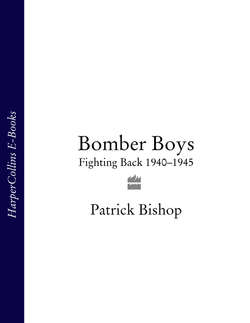Читать книгу Bomber Boys - Patrick Bishop - Страница 14
6 Enter ‘Butch’
ОглавлениеThough it might not have appeared so to despondent crews that winter, Bomber Command’s overall prospects were slowly improving. The Bomber Boys rarely caught a glimpse of the big picture. But during the second half of 1941 the wider war had taken on a new and encouraging direction. The German invasion of Russia in June had transformed the Soviet Union from an enemy to an ally. With the entry of the United States into the conflict after the 7 December attack on Pearl Harbor, all the riches of America were unlocked for use in the fight against the Nazis.
The pause in major operations ordered after the Berlin disaster gave an exhausted, depleted and dispirited force the chance to catch its breath and gather its strength. Over the months that followed the recent volunteers started to arrive in force at their operational squadrons. The first of the new generation of four-engined heavies, the Stirlings and Halifaxes, began to replace their two-engined predecessors. On Christmas Eve, 1941, the first of the Lancasters landed at RAF Waddington in Lincolnshire. Soon its blunt, menacing lines would be seen everywhere. Some of the new aircraft carried desperately-needed new electronic navigation aids. By the time Harris took over Bomber Command at the end of February 1942 the force was approaching a position where it could start applying the policies on which those running the war were now agreed.
Shortly before his arrival there was an event which gave heart to the battered squadrons. One day in early March 1942, Peter Johnson visited a bomber station in Nottinghamshire to have lunch with the base commander. Entering the mess he found a group of young officers in the middle of a raucous party. His host explained they were celebrating a ‘wizard prang’ the night before. ‘Come and look at the photos,’ he said. ‘They’re the best ever. Teach those bloody Frogs to play along with the Boche.’
